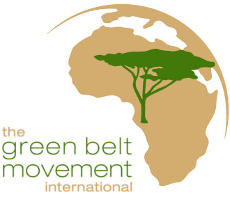
Background:
- Born in Nyeri, Kenya in 1940.
- Exceeded in her classes in primary school as a child.
- Chosen to attend university at Mount Saint Scholastic in Atchison, Kansas and earned a degree in biological sciences.
- Soon after earned a Master in Science from the University of Pittsburg
- Earned a PhD from the University of Nairobi, and became a the first woman chair and professor at the school
- Became chairman of National Council of Women of Kenya in 1981
Legacy:
Created the Green Belt Movement, a grassroots organization which organizes women in rural Kenya to plant trees, fight deforestation, restore their fuel for cooking, generate income, and stop soil erosion. This organization incorperates empowerment of women, economic development, and helps improve the environment.

How she was oppressed:
Maathai had to face the constant and brutal oppression of her intolerant and sexist government that was commonly against preserving human rights, especially the corrupt President Daniel Arap Moi. She was oppressed her entire life for being a woman, but it was only in the 1980’s, when the Green Belt movement started to become very influential, did this oppression grow to an unreasonable amount due to the Kenyan Government. The Kenya Government attempted to stop the Green Belt Movement and its protection of human rights by prohibiting it from meeting. This government also refused to listen to Maanthai when she argued against clearing large public parks for development. Instead they called her a “crazy woman”, and called the Green Belt Movement “a bogus organization and its members a bunch of divorcees”.
How she resisted:
Throughout her entire fight for human rights and the environment in Kenya, Wangari Maanthai did not backdown from the governments constant oppression. The best example of her fight is the hunger strike Maanthai went on in attempt to preserve Uhuru Park from being developed. Maathai started this fight for the park by writing letters to various groups arguing why this park should be saved. After being constantly ignored and criticized for her efforts, she began protesting. She was then arrested, and shortly after released on bail. It was then when she took part in a hunger strike for the release of other political protestors. Although the Kenyan government continued to criticize her and call her a “mad woman”, people all across the globe began to give Maanthai praise and recognition.
Works Cited
“Biography.” Wangari Maathai. N.p., n.d. Web. 08 Jan. 2013. <http://www.nobelprize.org/nobel_prizes/peace/laureates/2004/maathai-bio.html>.
“Wangari Maathai.” The Green Belt Movement. N.p., n.d. Web. 08 Jan. 2013. <http://www.greenbeltmovement.org/wangari-maathai>.
